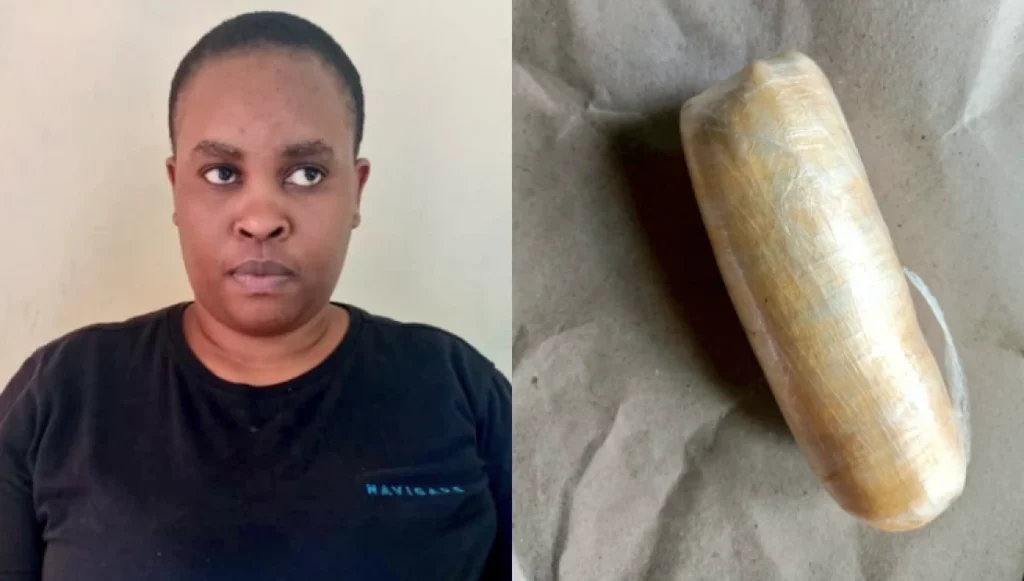In a significant crackdown on narcotics trafficking along Kenya’s Northern Frontier, law enforcement officials have arrested a 28-year-old woman who was found to be smuggling nearly 300 grams of cocaine. The suspect, identified as Jane Njeri Muigai, was taken into custody after a routine stop-and-search operation revealed the illicit cargo concealed within her private parts.

The arrest took place along the Moyale-Nairobi highway, a corridor increasingly scrutinized by anti-narcotics authorities due to its suspected use as a drug trafficking route. According to a detailed statement released by the Directorate of Criminal Investigations (DCI), Muigai was a passenger on a Nairobi-bound bus that was intercepted by a multi-agency security team during a standard traffic check.
The operation was part of a broader initiative by Kenyan law enforcement to monitor and disrupt drug smuggling operations flowing from border regions into the capital. During the inspection, officers reportedly became suspicious of Muigai’s demeanor, prompting them to carry out a secondary screening.
Female officers on the scene were tasked with conducting a more intimate body search in a private setting. It was during this procedure that 294 grams of cocaine were found hidden inside the suspect’s private parts. Authorities noted that the drugs were carefully wrapped and positioned to evade detection by conventional scanning methods.
The suspect was immediately detained and transferred to Moyale Police Station, where she is currently being held as investigations continue. The DCI’s Anti-Narcotics Unit is now leading the probe and preparing to formally charge Muigai with narcotics possession and trafficking under Kenya’s stringent anti-drug laws.
The Northern Frontier region of Kenya, which includes border towns like Moyale, has long been identified as a high-risk zone for transnational crime, including the movement of illegal drugs, arms, and contraband. The Moyale-Nairobi route in particular has come under increased scrutiny, with security agencies intensifying surveillance and establishing roadblocks to intercept smugglers.
Kenyan authorities have vowed to dismantle organized drug trafficking networks that exploit this corridor. Speaking following the arrest, officials emphasized that such operations are part of a national strategy to combat the flow of narcotics into major urban centers, including Nairobi, Mombasa, and Kisumu.
“This arrest sends a clear message to those who believe they can outsmart the law by using desperate and dangerous methods to traffic drugs,” said a senior DCI officer who requested anonymity. “We will continue to track, intercept, and prosecute traffickers with full force.”
Drug-related offenses have been a growing concern for Kenyan law enforcement, with an increasing number of arrests involving cross-border trafficking syndicates. Authorities have highlighted the use of women as drug mules, often coerced or manipulated into smuggling illicit substances in exchange for promised money or travel.
Experts say the concealment of drugs inside body cavities is part of a wider trend among traffickers trying to evade intensified border controls and road surveillance. The risks, however, are high—not only due to legal consequences but also because of the severe health dangers associated with internal drug concealment.
Jane Njeri Muigai is expected to face formal charges in court in the coming days, with prosecutors likely to request her continued detention given the severity of the offense. If convicted, she could face substantial prison time, as Kenya maintains a tough stance on narcotics trafficking, especially where cross-border movement is involved.
Meanwhile, the DCI has called on members of the public to remain vigilant and report suspicious activity as the war against drugs intensifies.



